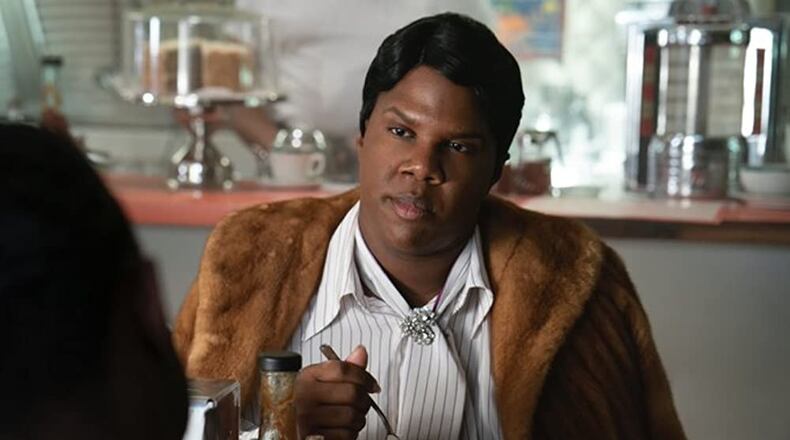Miss Lawrence was a popular hairdresser who started his TV career as a sidekick to Sheree Whitfield on “The Real Housewives of Atlanta.”
She segued next into hosting as part of a Bravo chat show called “Fashion Queens.” Then Lee Daniels of “Empire” fame took a fancy on her and gave her a role on that breakthrough show, before providing her an even bigger acting job on Fox’s “Star.”
When Daniels was pondering the idea of doing the film “The United States vs. Billie Holiday,” which is now available on Hulu, he thought of Miss Lawrence for the part of Miss Freddy, a hairstylist and fashion maven for Holiday.
Miss Lawerence, whose real name is Lawrence Washington, said she was instantly intrigued and went to learn more about Holiday, who was a successful Black torch singer from the 1930s through the 1950s.
But while Holiday (played by singer Andra Day in the film) is best known for her love songs, she was more than that. In 1939, she released a song called “Strange Fruit,” about lynchings of Black people in the South that became a protest anthem for early civil rights advocates. The song also drew the attention of the FBI in the 1950s and officials there used her heroin addiction as an excuse to assign a Black FBI agent to follow her around and make her life difficult.
Miss Lawrence previously knew Holiday from the 1972 biopic “Lady Sings the Blues,” starring Diana Ross, enthralled by the intersection of fashion and early feminism: “I found Billie Holiday fascinating and fabulous through that lens.”
Daniels’ film provides darker shades, the suffering Holiday faced in the hands of men in her life as well as the drugs and blatantly racist actions of the FBI. She was arrested and imprisoned for singing “Strange Fruit” and lost her ability to perform in cabarets in New York City.
In the film, Miss Freddy is a loyalist who protects Holiday and is immediately suspicious of Jimmy Fletcher (Trevante Rhodes), the FBI agent who takes an actual liking to Holiday despite the job he was set out to do. Miss Freddy gets a meaty scene one on one with Fletcher to call him out for what he was doing and to warns him not to hurt Holiday.
Miss Lawrence said there isn’t much known about Miss Freddy or even what she looked like, but she bonded intimately with the character’s unalloyed friendship with Holiday.
“I have a strong connection to women, Black women in particular,” she said. “A lot of my very closest friends are Black women. They were the ones who accepted me for who I am from an early age whether they were in full agreement or not. I knew I was loved.”
She admired Miss Freddy for being gender and sex non-conformist decades before it was even remotely acceptable. “Their stories are not often told,” Miss Lawrence said. “I thought it was genius for Lee to make sure Miss Freddy got the visibility in the movie.”
The film, though set in New York City largely in the 1950s, was shot in Montreal in 2019. “The architecture, the cobblestone streets, it really gave you the feeling and essence of that time,” she said.
She also was perpetually amazed by the singing of Day, who is best known for her popular anthem “Rise Up.” (As a singer herself, Miss Lawrence got to do a little riffing herself in the movie.)
“She sang everything live,” she said. “That voice, that inflection, that tone, that realness and rawness she puts into her voice. I got chills every time I heard her. It was a real treat.”
Miss Lawrence is glad to be part of a story that is an important part of African-American history told by a gifted producer like Daniels.
“We are now in a space where we can tell our full stories and tell our truths in a very unadulterated way, stories that helped shift and change our culture as Black people,” she said. “We have to honor people like Billie Holiday and Miss Freddy and so many people that came way before us and started the work. Eventually, it won’t be work anymore, and we’ll literally be able to live in our full freedom.”
WHERE TO WATCH
“The United States vs. Billie Holiday,” available now for Hulu subscribers
About the Author
Keep Reading
The Latest
Featured




